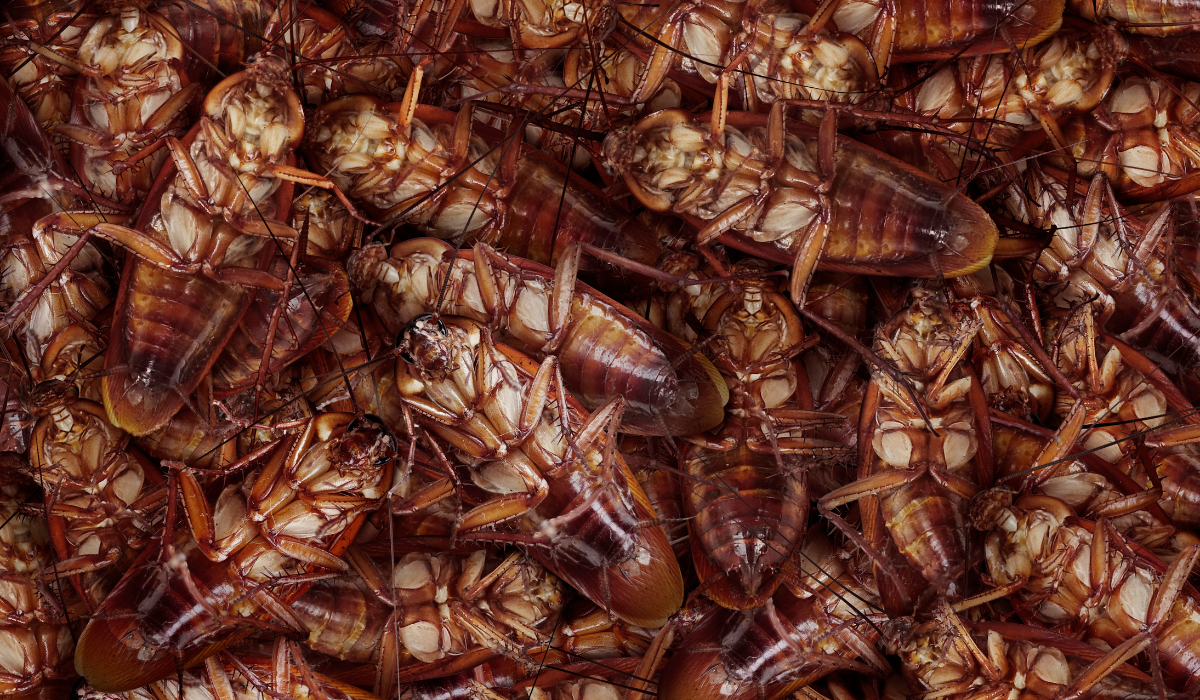Do Cockroaches Crawl in your Mouth when you Sleep

If you have ever seen a cockroach scurrying across the floor, you know how unsettling it can be. But what if these creepy crawlers are not just confined to the ground? What if they actually crawl into our mouths while we sleep? This is a common question that many people have, and we will explore the truth behind this myth. We explore the common myth that cockroaches crawl into our mouths while we sleep. To do so, we first provide some background information on cockroaches, including their physical characteristics and behavior.
What are Cockroaches?
Before we dive into whether or not cockroaches crawl into our mouths, let’s first understand what these insects are. Cockroaches are insects that belong to the order Blattodea. They are known for their flattened bodies, long antennae, and wings. These insects are known for their ability to adapt to various environments, making them a common pest in many households. First, let’s take a closer look at the anatomy of a cockroach. Cockroaches have a flat, elongated body with six legs, two antennae, and a pair of wings. They are fast-moving insects that can scurry up walls and across ceilings with ease. However, their size and shape make it difficult for them to fit into small spaces, including the tiny opening of a human mouth.
Can Cockroaches Crawl into Your Mouth While You Sleep?
Now that we know what cockroaches are, let’s get to the heart of the matter. Can cockroaches actually crawl into our mouths while we sleep? The short answer is no. While it is true that cockroaches are attracted to warm, dark, and moist places, such as the inside of our mouths, they are not likely to crawl into our mouths while we sleep.
The Anatomy of the Mouth
To understand why cockroaches are unlikely to crawl into our mouths, we must first look at the anatomy of the mouth. The mouth is not just an open cavity; it has a complex structure that includes the tongue, teeth, and uvula. These structures make it difficult for anything to crawl into our mouths, especially a cockroach.
Cockroach Behavior
Another reason why cockroaches are unlikely to crawl into our mouths is their behavior. Cockroaches are nocturnal insects, meaning they are most active at night. They are also fast runners and prefer to stay hidden in dark places. If a cockroach were to crawl on someone’s face, they would likely wake up before the cockroach could crawl into their mouth.
Myth Debunked
So, where did the myth that cockroaches crawl into our mouths come from? It is likely that this myth originated from a misunderstanding of cockroach behavior. While it is true that cockroaches are attracted to warm, dark, and moist places, such as the inside of our mouths, they are not likely to crawl into our mouths while we sleep.
Are Cockroaches Harmful?
While cockroaches may not crawl into our mouths while we sleep, they can still be harmful. Cockroaches are known to carry disease-causing bacteria, and their feces and shed skin can trigger allergies and asthma. It is important to keep your home clean and free of cockroaches to prevent these health risks.
How to Prevent Cockroach Infestations
Preventing cockroach infestations is key to keeping your home free of these pests. Here are some tips to keep in mind:
• Keep your home clean and free of food debris.
• Store food in airtight containers.
• Seal cracks and crevices in your home’s walls and foundation.
• Fix any leaks in your plumbing.
• Keep trash cans sealed and dispose of garbage regularly.
Signs of a cockroach infestation in your home
Cockroaches are a common household pest that can be difficult to get rid of once they infest your home. One of the first steps to dealing with a cockroach problem is to identify if you have an infestation. Here are some signs to look out for:
1. Sightings: The most obvious sign of a cockroach infestation is seeing them in your home. Cockroaches are nocturnal insects, so they are often seen scurrying around at night. However, if you see them during the day, it could mean that the infestation is severe.
2. Fecal matter: Cockroaches leave droppings that look like small black or brown specks. You can usually find them in areas where cockroaches are active, such as near food sources, in cupboards, or under sinks.
3. Egg casings: Cockroaches lay their eggs in small, brown, oval-shaped casings that are about the size of a grain of rice. You may find these casings in areas where cockroaches are active.
4. Musty odor: Cockroaches emit a musty odor that can be strong when the infestation is severe. The odor is caused by the pheromones that cockroaches release.
5. Shed skins: Cockroaches shed their skin as they grow. You may find these skins in areas where cockroaches are active.
If you notice any of these signs in your home, it is important to take action as soon as possible to prevent the infestation from getting worse.
Conclusion
In conclusion, the myth that cockroaches crawl into our mouths while we sleep is just that – a myth. While cockroaches may be attracted to warm, dark, and moist places, such as the inside of our mouths, they are not likely to crawl into our mouths while we sleep. However, cockroaches can still be harmful, as they are known to carry disease-causing bacteria and can trigger allergies and asthma. It is important to keep your home clean and free of cockroaches to prevent these
RECENT ARTICLES
